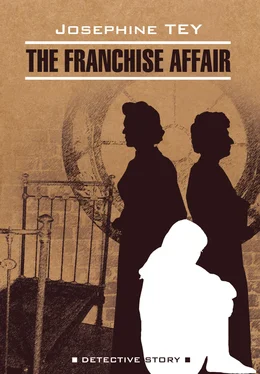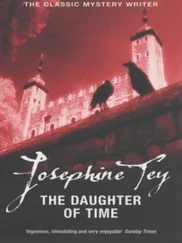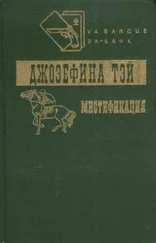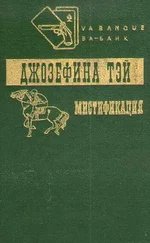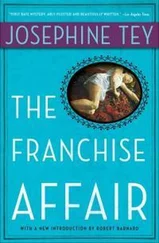He sat down on one of the chintz-covered chairs in the lounge and looked at the dog-eared journals lying on the adjacent coffee table. The only current number was the Watchman , the weekly review, and he picked it up reluctantly, thinking yet once more how the dry feel of the paper offended his finger tips and its serrated edges set his own teeth on edge. It was the usual collection of protests, poems, and pedantry; the place of honour among the protests being accorded to Nevil’s future father-in-law, who spread himself for three-quarters of a column on England’s shame in that she refused sanctuary to a fugitive patriot.
The Bishop of Larborough had long ago extended the Christian philosophy to include the belief that the underdog is always right. He was wildly popular with Balkan revolutionaries, British strike committees, and all the old lags in the local penal establishment. (The sole exception to this last being that chronic recidivist, Bandy Brayne, who held the good bishop in vast contempt, and reserved his affection for the Governor; to whom a tear in the eye was just a drop of H 2O, and who unpicked his most heart-breaking tales with a swift, unemotional accuracy.) There was nothing , said the old lags affectionately, that the old boy would not believe; you could lay it on with a trowel.
Normally Robert found the Bishop mildly amusing, but today he was merely irritated. He tried two poems, neither of which made sense to him, and flung the thing back on the table.
“England in the wrong again?” asked Ben Carley, pausing by his chair and jerking a head at the Watchman .
“Hullo, Carley.”
“A Marble Arch for the well-to-do,” the little lawyer said, flicking the paper scornfully with a nicotine-stained finger. “Have a drink?”
“Thanks, but I’m waiting for old Mr. Wynyard. He doesn’t move a step more than he need, nowadays.”
“No, poor old boy. The sins of the fathers. Awful to be suffering for port you never drank! I saw your car outside The Franchise the other day.”
“Yes,” said Robert, and wondered a little. It was unlike Ben Carley to be blunt. And if he had seen Robert’s car he had also seen the police cars.
“If you know them you’ll be able to tell me something I always wanted to know about them. Is the rumour true?”
“Rumour?”
“ Are they witches?”
“Are they supposed to be?” said Robert lightly.
“There’s a strong support for the belief in the countryside, I understand,” Carley said, his bright black eyes resting for a moment on Robert’s with intention, and then going on to wander over the lounge with their habitual quick interrogation.
Robert understood that the little man was offering him, tacitly, information that he thought ought to be useful to him.
“Ah well,” Robert said, “since entertainment came into the country with the cinema, God bless it, an end has been put to witch-hunting.”
“Don’t you believe it. Give these midland morons a good excuse and they’ll witch-hunt with the best. An inbred crowd of degenerates, if you ask me. Here’s your old boy. Well, I’ll be seeing you.”
It was one of Robert’s chief attractions that he was genuinely interested in people and in their troubles, and he listened to old Mr. Wynyard’s rambling story with a kindness that won the old man’s gratitude – and added, although he was unaware of it, a hundred to the sum that stood against his name in the old farmer’s will – but as soon as their business was over he made straight for the hotel telephone.
There were far too many people about, and he decided to use the one in the garage over in Sin Lane. The office would be shut by now, and anyhow it was further away. And if he telephoned from the garage, so his thoughts went as he strode across the street, he would have his car at hand if she – if they asked him to come out and discuss the business further, as they very well might, as they almost certainly would – yes, of course they would want to discuss what they could do to discredit the girl’s story, whether there was to be a case or not – he had been so relieved over Hallam’s news that he had not yet come round in his mind to considering what—
“Evening, Mr. Blair,” Bill Brough said, oozing his large person out of the narrow office door, his round calm face bland and welcoming. “Want your car?”
“No, I want to use your telephone first, if I may.”
“Sure. Go ahead.”
Stanley, who was under a car, poked his fawn’s face out and asked:
“Know anything?”
“Not a thing, Stan. Haven’t had a bet for months.”
“I’m two pounds down on a cow called Bright Promise. That’s what comes of putting your faith in horseflesh. Next time you know something—”
“Next time I have a bet I’ll tell you. But it will still be horseflesh.”
“As long as it’s not a cow—” Stanley said, disappearing under the car again; and Robert moved into the hot bright little office and picked up the receiver.
It was Marion who answered, and her voice sounded warm and glad.
“You can’t imagine what a relief your note was to us. Both my mother and I have been picking oakum for the last week. Do they still pick oakum, by the way?”
“I think not. It is something more constructive nowadays, I understand.”
“Occupational therapy.”
“More or less.”
“I can’t think of any compulsory sewing that would improve my character.”
“They would probably find you something more congenial. It is against modern thought to compel a prisoner to do anything that he doesn’t want to.”
“That is the first time I have heard you sound tart.”
“Was I tart?”
“Pure angostura.”
Well, she had reached the subject of drink; perhaps now she would suggest his coming out for sherry before dinner.
“What a charming nephew you have, by the way.”
“Nephew?”
“The one who brought the note.”
“He is not my nephew,” Robert said coldly. Why was it so ageing to be avuncular? “He is my first cousin once removed. But I am glad you liked him.” This would not do; he would have to take the bull by the horns. “I should like to see you sometime to discuss what we can do to straighten things out. To make things safer—” He waited.
“Yes, of course. Perhaps we could look in at your office one morning when we are shopping? What kind of thing could we do, do you think?”
“Some kind of private inquiry, perhaps. I can’t very well discuss it over the telephone.”
“No, of course you can’t. How would it do if we came in on Friday morning? That is our weekly shopping day. Or is Friday a busy day for you?”
“No, Friday would be quite convenient,” Robert said, swallowing down his disappointment. “About noon?”
“Yes, that would do very well. Twelve o’clock the day after tomorrow, at your office. Goodbye, and thank you again for your support and help.”
She rang off, firmly and cleanly, without all the usual preliminary twitterings that Robert had come to expect from women.
“Shall I run her out for you,” Bill Brough asked as he came out into the dim daylight of the garage.
“What? Oh, the car. No, I shan’t need it tonight, thanks.”
He set off on his normal evening walk down the High Street, trying hard not to feel snubbed. He had not been anxious to go to The Franchise in the first instance, and had made his reluctance pretty plain; she was quite naturally avoiding a repetition of the circumstances. That he had identified himself with their interests was a mere business affair, to be resolved in an office, impersonally. They would not again involve him further than that.
Ah, well, he thought, flinging himself down in his favourite chair by the wood fire in the sitting-room and opening the evening paper (printed that morning in London), when they came to the office on Friday he could do something to put the affair on a more personal basis. To wipe out the memory of that first unhappy refusal.
Читать дальше
